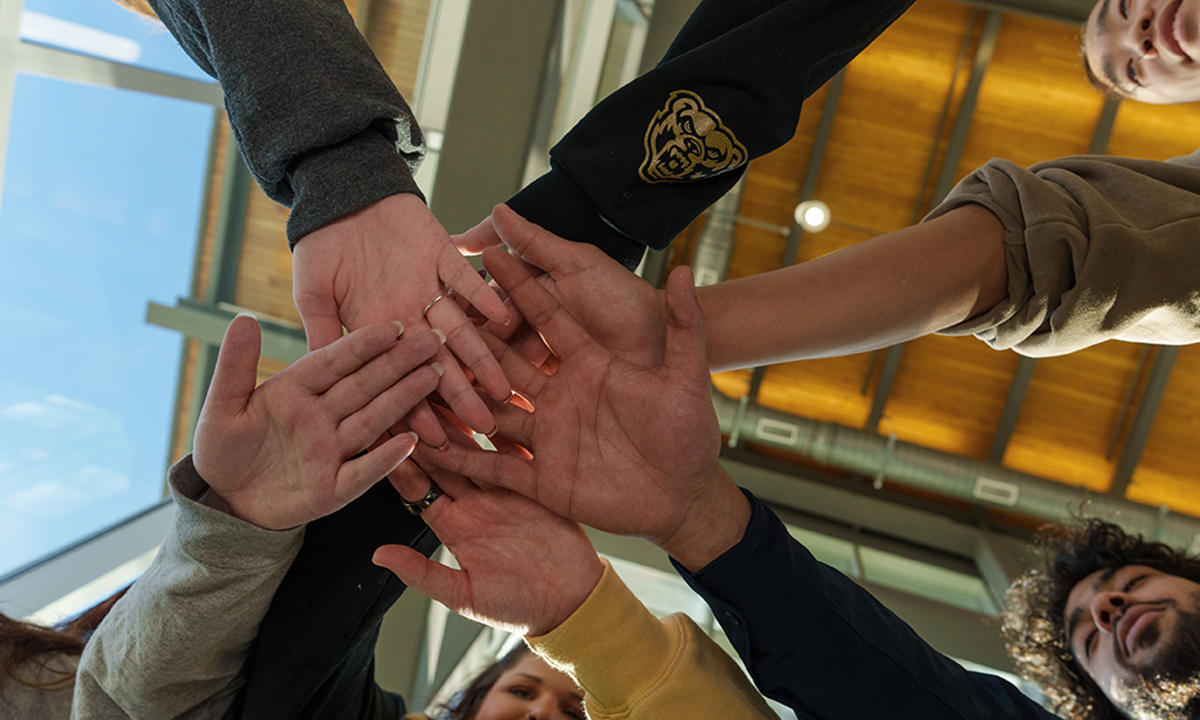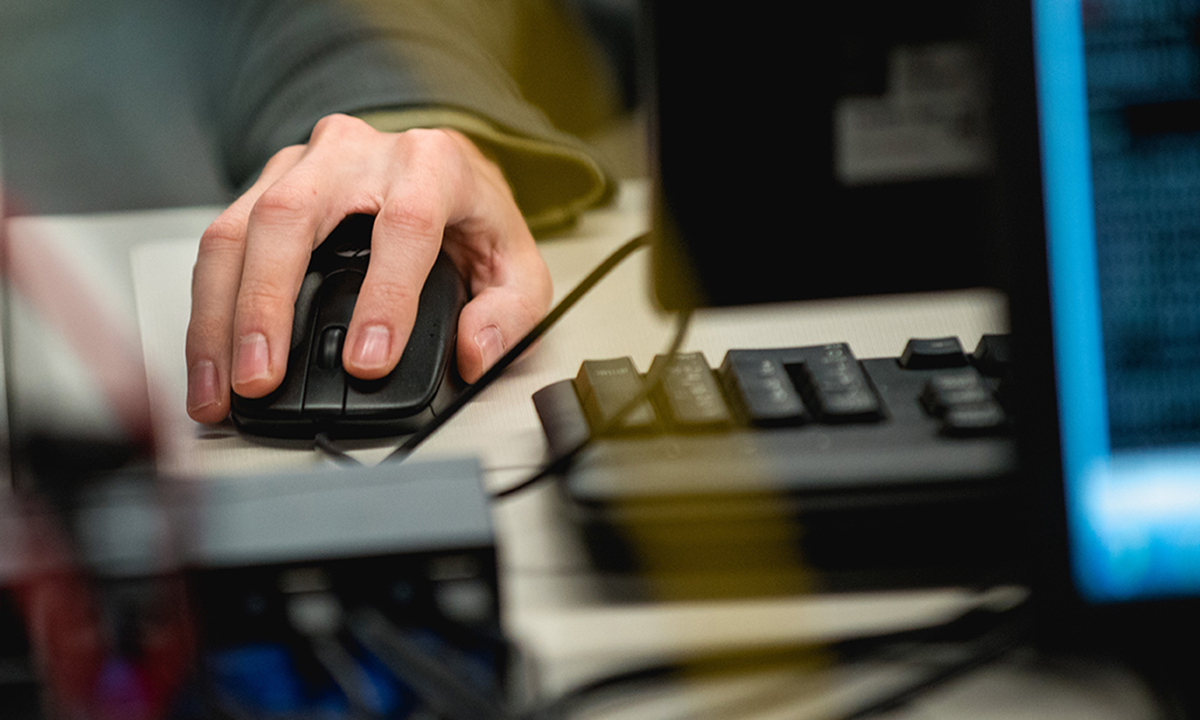Growing Innovators
Joanna Chang, Victoria Sutherland and Olivia Racette are the first SECS students to work on a NASA team challenge
For hundreds of students, Oakland University lights the way to innovation with learning experiences that empower and exhilarate their creative potential. Joanna Chang, Victoria Sutherland and Olivia Racette can attest to this firsthand: In summer of 2021, they became the first SECS students to work on a NASA team challenge – The Deep Space Food Challenge – an international competition aimed to create novel and game-changing food technologies for long-duration space missions that also have the potential to benefit people on Earth.
The three students entered the Deep Space Food Challenge for a number of reasons. Joanna Chang, a mechanical engineering student specializing in automotive, was drawn to the project because of her developing curiosity about the aerospace industry. For Victoria Sutherland, also pursuing a mechanical engineering degree, interest in sustainability and energy research was combined with her personal passion for vegetarianism. “The idea that I could apply this to the Deep Space Food Challenge project that can potentially aid our astronauts was very exciting,” she says. Olivia Racette, majoring in bioengineering with a minor in computer science, saw the Deep Space Food Challenge as a great learning opportunity to expand her bioengineering knowledge beyond working with medical devices. And all of them were thrilled to create something that had not been done before.
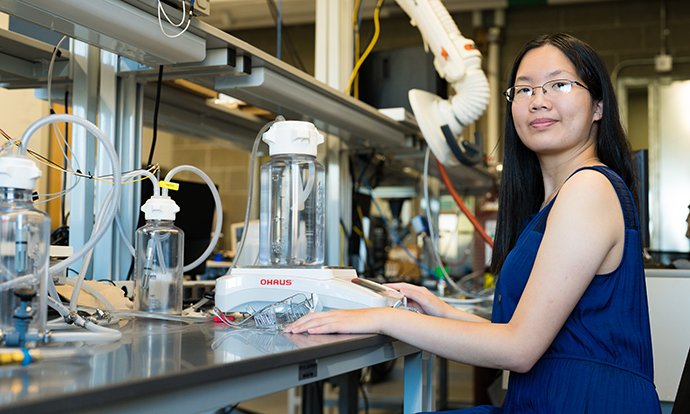 |
| Joanna Chang, a mechanical engineering student specializing in automotive, was drawn to the project because of her developing curiosity about the aerospace industry. |
The project, overseen by Jonathan Maisonneuve, Ph.D., assistant professor of mechanical engineering, was part of the National Science Foundation-funded Automotive and Energy Research and Industrial Mentorship (AERIM) Research Experience for Undergraduates (REU) program – a highly-competitive program open to 10-12 undergraduate students from across the United States, who spent 10 weeks in the summer working with the SECS mechanical engineering faculty on automotive and energy-related research projects. Seed funding from the Michigan Space Grant Consortium also supported the project.
“Our Energy, Water and Food Lab develops membrane processes that can be used to improve access to critical food, energy and water resources that are essential to life,” says Dr. Maisonneuve, emphasizing the need for an innovative food system to eliminate space missions’ dependence on food shipments from Earth. “We were excited to take some of findings and, over these 10 weeks, study how they could be used to improve food, energy and water systems in space,” he states.
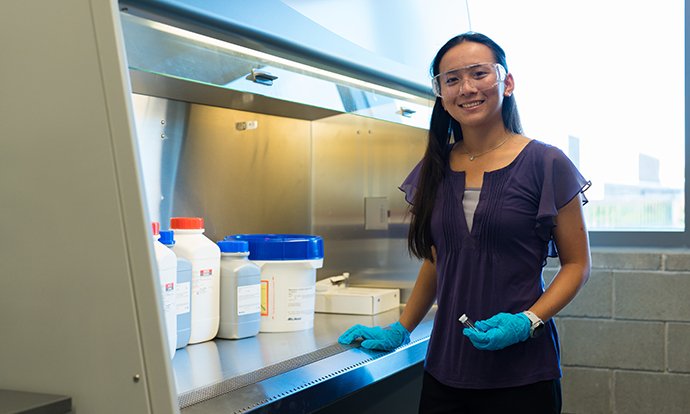 |
| Olivia Racette, majoring in bioengineering with a minor in computer science, saw the Deep Space Food Challenge as a great learning opportunity to expand her bioengineering knowledge. |
Along with their mentor, Chang, Sutherland and Racette designed the Cubic Greens Space Food System – an efficient food production system capable of producing sprouts and greens dense in calories and rich in essential macro- and micronutrients. The unit measured one cubic meter and provided over 1.35 squared meters growing area, arranged in three grow bays. In total, the system could provide up to 48% of the daily calories required by an astronaut, consuming merely 1.5 kWh of electric energy and one gram of fertilizer per day.
“Our food system is innovative due, in part, to its use of a fertilizer osmosis design that has been pioneered at Oakland University,” says Chang, crediting the university’s research with giving them an innovative advantage. “Concentrated fertilizer has a tremendous amount of energy potential that can be utilized through osmosis to draw clean water out of a waste source. The clean fertigation solution is then used to direct water the leafy greens, reducing both water waste and water footprint.”
Another key innovation of this system was the selection of energy-dense sprouts. “We used the information from experiments of sprouts in space and knowledge of current food systems aboard the ISS to create a novel food production system that expanded beyond what had already been done by growing considerably more sprouts than ever before,” Sutherland explains.
The proposed solution also expanded the variety of flavors produced within a single system. “Our team carefully selected certain types of leafy greens and sprouts in order to create a reliable and innovative selection of food. The foods in Cubic Greens can be consumed in multiple ways and require only 25 minutes per astronaut in preparation,” adds Racette.
Creative thinking and ability to apply existing knowledge to novel situations through hands-on experiences are vital when it comes to innovation.
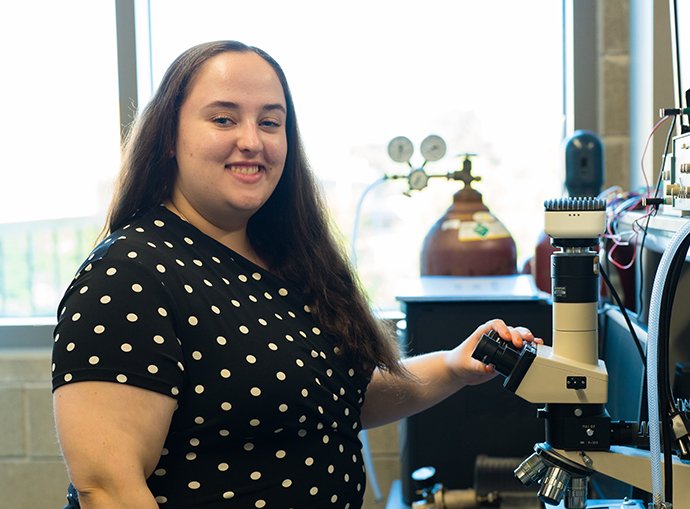 |
| Victoria Sutherland, pursuing a mechanical engineering degree, was interested in sustainability and energy research, combined with her personal passion for vegetarianism. |
“Through this particular design challenge students had the opportunity to learn about the constraints of producing food in space and then to apply engineering principles towards a solution. Providing students with such hands-on design challenges is an important part of our engineering programs at Oakland University,” Dr. Maisonneuve says.
The students agree, citing the program’s valuable benefits and their numerous gains. To Chang, the challenge afforded an opportunity to explore her field of study in a very unique way she didn’t expect as an engineer. To Racette, the project facilitated taking risks and being creative.“I developed skills that are essential for working on an innovation – communicating effectively, trading and building off of peers’ ideas, and being able to work together cooperatively as well as independently,” she says.“
"It very much helped me academically and professionally because working on a very important project and developing a viable solution gave me a lot of confidence,” concurs Sutherland.
The Deep Space Food Challenge is a challenging multi-disciplinary project that reflects the high level of hands-on learning within the SECS AERIM REU program,” says Laila Guessous, Ph.D., professor of mechanical engineering and the director of the program. “The success of this research shows that our engineering students are able to tackle very complex problems."
As it happens when meaningful learning takes place, working on the Deep Space Food Challenge enabled much more than the growth of sustainable foods for long-duration space missions – it enabled students’ growth as learners, thinkers and innovators.
Since 2006, a total of 104 undergraduate students from 70 different universities across the United States have participated in the AERIM REU program. The REU program will accept student applications in winter of 2022. For more information, please visit OU AERIM REU.
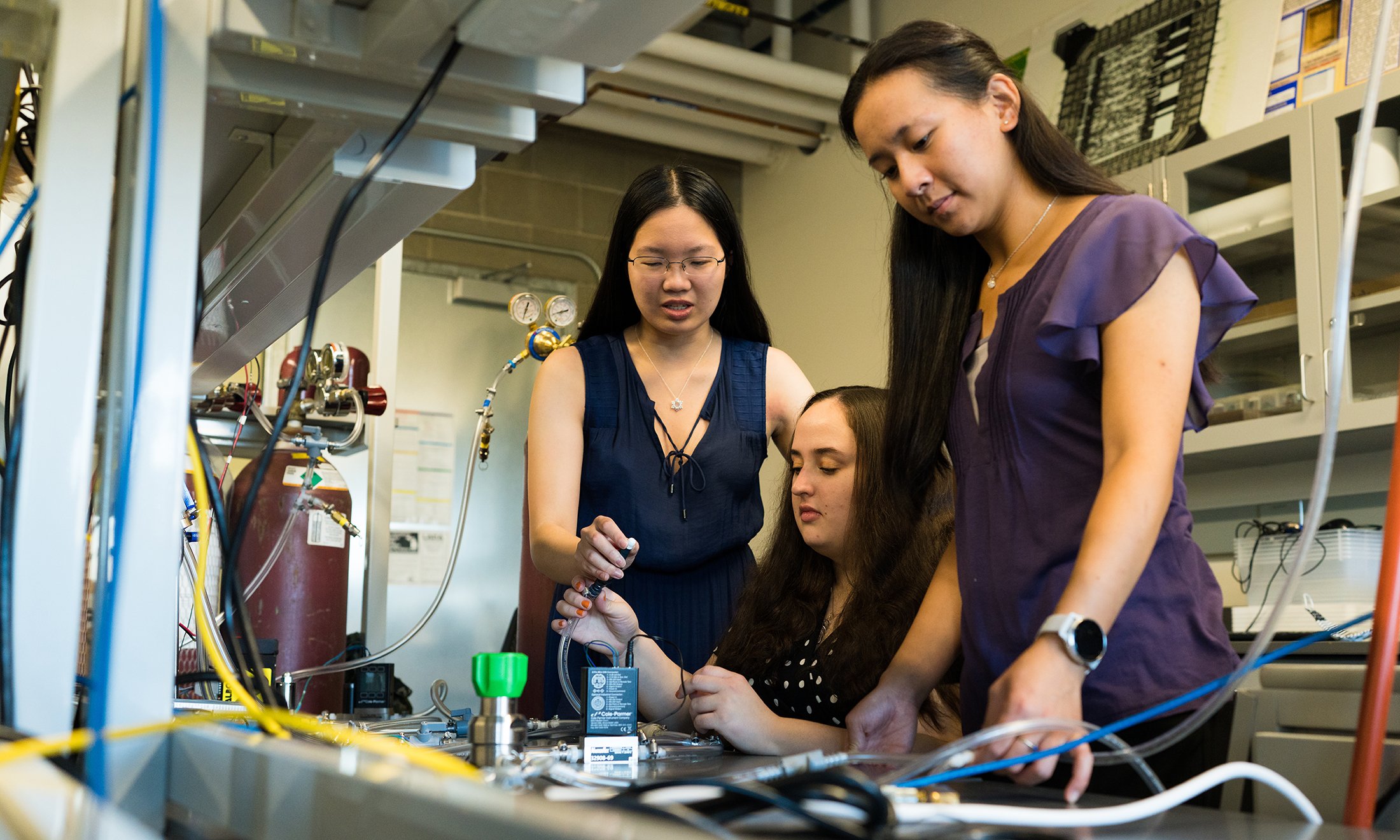
 December 15, 2021
December 15, 2021
 By Arina Bokas
By Arina Bokas